History
History
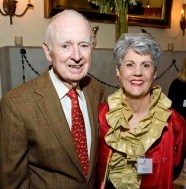 Like most stories of aphasia, HARC’s history begins with a brain injury. Dr. Blair Justice suffered a stroke on September 11, 2004, during emergency bypass surgery that left him with aphasia. Blair, a neuropsychologist and Professor Emeritus at The University of Texas School of Public Health, was unable to speak, read or write. But he was one of the lucky ones. With speech therapy, hard work, and the support of his wife, Dr. Rita Justice, a psychologist, he gradually regained his communication skills. In 2007, they joined the Board of the National Aphasia Association (NAA). That is where the Drs. Justice learned both how many people are affected by aphasia (over two million) and that there was not even a representative for the NAA in Houston, a city with the largest medical center in the world. They resolved to do something about what they considered a glaring need.
Like most stories of aphasia, HARC’s history begins with a brain injury. Dr. Blair Justice suffered a stroke on September 11, 2004, during emergency bypass surgery that left him with aphasia. Blair, a neuropsychologist and Professor Emeritus at The University of Texas School of Public Health, was unable to speak, read or write. But he was one of the lucky ones. With speech therapy, hard work, and the support of his wife, Dr. Rita Justice, a psychologist, he gradually regained his communication skills. In 2007, they joined the Board of the National Aphasia Association (NAA). That is where the Drs. Justice learned both how many people are affected by aphasia (over two million) and that there was not even a representative for the NAA in Houston, a city with the largest medical center in the world. They resolved to do something about what they considered a glaring need.
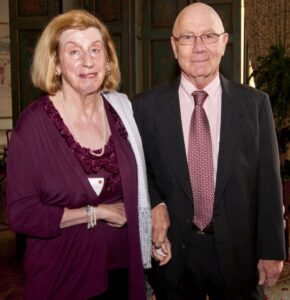 Their first step was to hand out brochures for the NAA at a Stroke Survivor Conference in April 2008. A couple walked up to the table, picked up the brochure, and the man said, “Well, we’re here to find a center for people with aphasia. You know there’s nothing in Houston.” Rita replied, “There’s going to be, and we’re going to do it together.” That is how Doris and Rick Spengler and Rita and Blair Justice became the Houston Aphasia Recovery Center co-founders.
Their first step was to hand out brochures for the NAA at a Stroke Survivor Conference in April 2008. A couple walked up to the table, picked up the brochure, and the man said, “Well, we’re here to find a center for people with aphasia. You know there’s nothing in Houston.” Rita replied, “There’s going to be, and we’re going to do it together.” That is how Doris and Rick Spengler and Rita and Blair Justice became the Houston Aphasia Recovery Center co-founders.
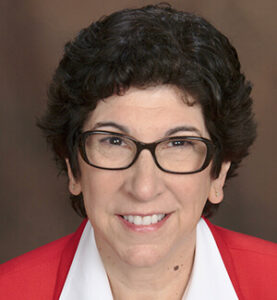 Rita and Blair began contacting professionals they knew in the stroke community to obtain guidance while Rick and Doris researched other aphasia centers. Dr. Sharon Ostwald, the Director of the Center on Aging at the University of Texas School of Nursing, suggested that they find a home at the University of Houston Department of Communication Sciences and Disorders. She didn’t know and soon learned that the new Chair of the Department, Dr. Lynn Maher, is a world-renowned aphasia expert. When Rita called her to discuss the idea of creating an aphasia center in Houston, Dr. Maher’s reply, “Yours is the call I’ve been waiting for.” The Justices, the Spengler’s, and Dr. Maher were the five founding members of HARC.
Rita and Blair began contacting professionals they knew in the stroke community to obtain guidance while Rick and Doris researched other aphasia centers. Dr. Sharon Ostwald, the Director of the Center on Aging at the University of Texas School of Nursing, suggested that they find a home at the University of Houston Department of Communication Sciences and Disorders. She didn’t know and soon learned that the new Chair of the Department, Dr. Lynn Maher, is a world-renowned aphasia expert. When Rita called her to discuss the idea of creating an aphasia center in Houston, Dr. Maher’s reply, “Yours is the call I’ve been waiting for.” The Justices, the Spengler’s, and Dr. Maher were the five founding members of HARC.
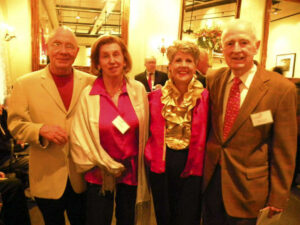 In January 2009, these five fearless founders engaged Fowler/Reedy Advisors (Cece Fowler and Susan Reedy) to guide them by creating a non-profit organization.
In January 2009, these five fearless founders engaged Fowler/Reedy Advisors (Cece Fowler and Susan Reedy) to guide them by creating a non-profit organization.
That year the first HARC conversation group for people with aphasia began on a drop-in basis in the spring of 2009 at the University of Houston and was facilitated by Dr. Maher.
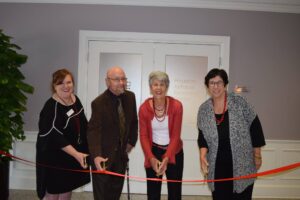 In January 2010, the HARC Board secured its first office and opened its doors in February for classes with seven participants attending the UH groups and their caregivers. Stephanie Schmadeke was the only employee, and she was part-time.
In January 2010, the HARC Board secured its first office and opened its doors in February for classes with seven participants attending the UH groups and their caregivers. Stephanie Schmadeke was the only employee, and she was part-time.
Because of a core of dedicated volunteers and invested Board members, HARC overgrew that it demanded a larger space to accommodate its growing needs. In June 2017, HARC moved to its third location at 5005 Woodway Drive. HARC began offering virtual programs in March 2020. It’s now the premier resource for people with aphasia and their families in Houston.